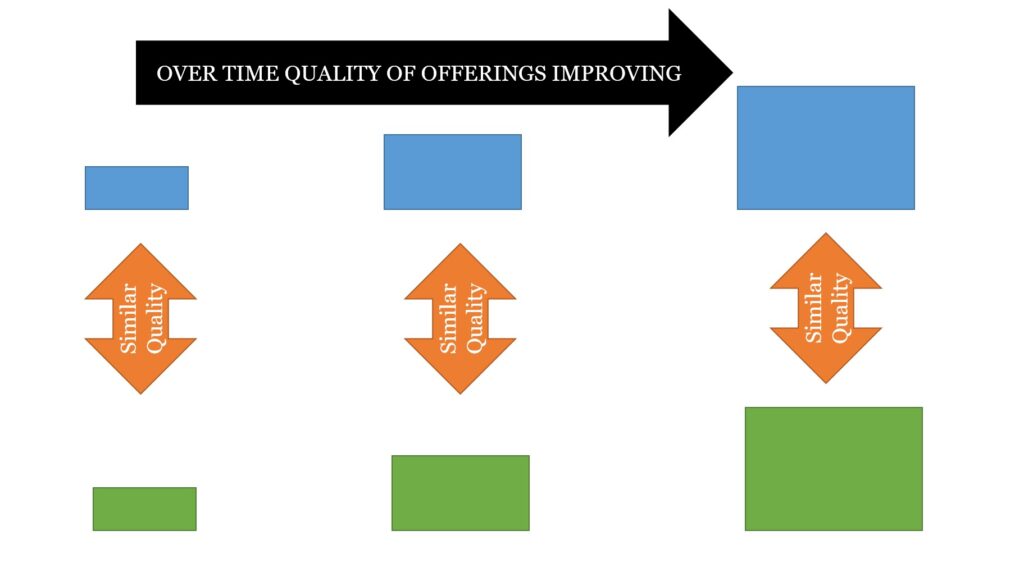It is hard to spend any time at a business school without hearing the phrase best practice. We teach students best practice. Junior professors seek hints from senior folk on best practice. Even schools regularly go through bouts of benchmarking to see if they are adopting best practice. Best practice essentially is something that gets the most out of what the school has. For example, financial resources, time, students, staff. Consider biological notion — the Red Queen. What does this mean for best practice?
Benchmarking
One problem is that, if we are trying to do different things, my best resource allocation is likely to be different to yours. Thus, benchmarking may merely report on strategic decisions. It might tell us, for example, we decided to invest more in staff not the building. In such cases benchmarking whether the building is best in class seems a bit pointless. The building is worse than some others. Yet, this is deliberate. It is because the strategic decision was made to allow it to be.
Best Practice Can Be Nebulous
Another problem with a lot of benchmarking is that the idea of best practice is a pretty nebulous one even after correcting for the school’s strategic decisions. The target, best practice, is constantly moving when competitors take action. Indeed, whenever you take action yourself you change the makeup of the market itself. Maybe the prior best practice you were aiming to emulate is no longer best practice in the new market you have just helped create.
Red Queen
David Stewart and Robert Winsor (2016) make this point in considering the changing nature of marketing. They discuss the Red Queen hypothesis; which is based upon the Red Queen in Alice’s Wonderland. She says that in order to stay still (compared to everything else) you must constantly keep moving. According to Stewart and Winsor:
… the Red Queen hypothesis condemns any given marketing activity or strategy to a limited life span over which it can be effectively leveraged.
Stewart and Winsor, 2016, page 255

They tie this thinking back to best practice.
…it is largely unrealistic to seek standardised solutions or “best practice” in marketing strategy. In marketing, definitions of competitive success must be bounded within highly unique contexts, and are typically based upon transitory, evolving and relative strategies.
Stewart and Winsor, 2016, page 255
The basic message is that you should keep trying to improve but will never have the comfort of achieving best practice.
For more on evolutionary ideas in strategy see here.
Read: David W. Stewart and Robert D. Winsor, 2016, Marketing Organization and Accountability, In Accountable Marketing: Linking Marketing Actions to Financial Performance, Edited by David W. Stewart and Craig T. Gugel, Routledge, MASB
